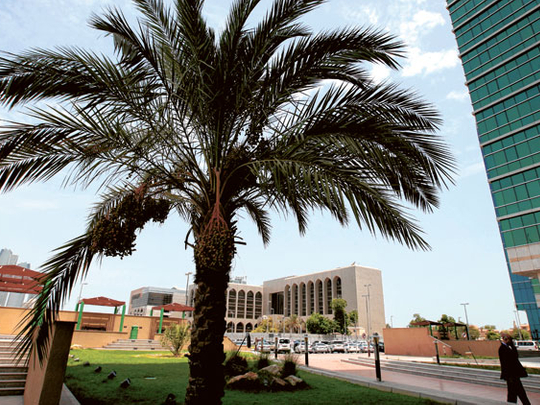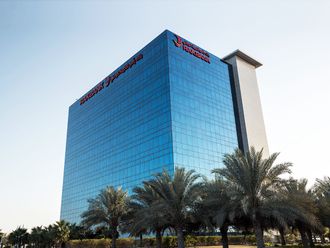
Dubai: The UAE’s banking system has “sufficient capacity to withstand a severe yet plausible deterioration in macroeconomic and financial market conditions,” according to the country’s central bank.
The assessment comes after banks in the UAE underwent a regulatory stress test in 2017 put forward by the central bank to assess resilience to adverse shocks covering three years.
While the central bank did not say if any banks failed the stress test, it said that banks that perform poorly will be subjected to “further supervisory review and will be required to submit a detailed plan to improve their capital adequacy.”
In its 2017 Financial Stability Report issued on Monday, the Central Bank of the UAE also said the banking sector remained resilient, with strong capital ratios, liquidity buffers, profitability and stable sources of funding.
Mubarak Rashed Al Mansouri, central bank governor, said that the improved economic outlook for the UAE, coupled with more favourable financial market conditions, would likely support financial stability going forward.
He cautioned, however, that banks and financial services companies must adequately manage financial risk and “remain mindful of potential global and regional macro-financial uncertainties.”
In its report, the central bank said the financial cycle in the UAE remained in a contractionary phase in 2017, with a slowdown in credit growth.
Lending growth showed a marked slowdown in 2017 — at 1.7 per cent during the year compared to 6 per cent in 2016. The slowdown came as non-performing loans rose, reaching 4 per cent for the retail sector in 2017, up from 3.8 per cent in 2016.
In terms of income, the UAE banking system’s profitability rebounded in 2017, the central bank said, increasing by 10 per cent largely due to higher non-interest income.
In the report, the central bank also outlined risks for the banking system. It said that the expected hikes in interest rates may lead to pressure on stock prices, and highlighted initial coin offerings as another risk factor given the lack of regulations around them.
The central bank designated four banks as systemically important; First Abu Dhabi Bank (FAB), Emirates NBD, Abu Dhabi Commercial Bank (ADCB), and Dubai Islamic Bank (DIB). The first three were designated as such in 2016, while DIB was only added to the list in 2017.
A systemically important bank is one whose failure could trigger a financial crisis.












